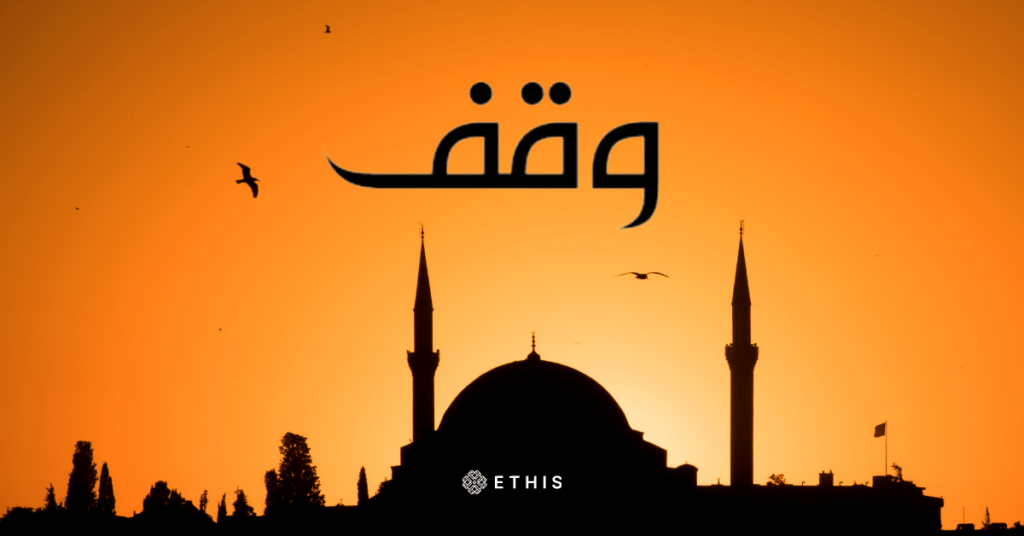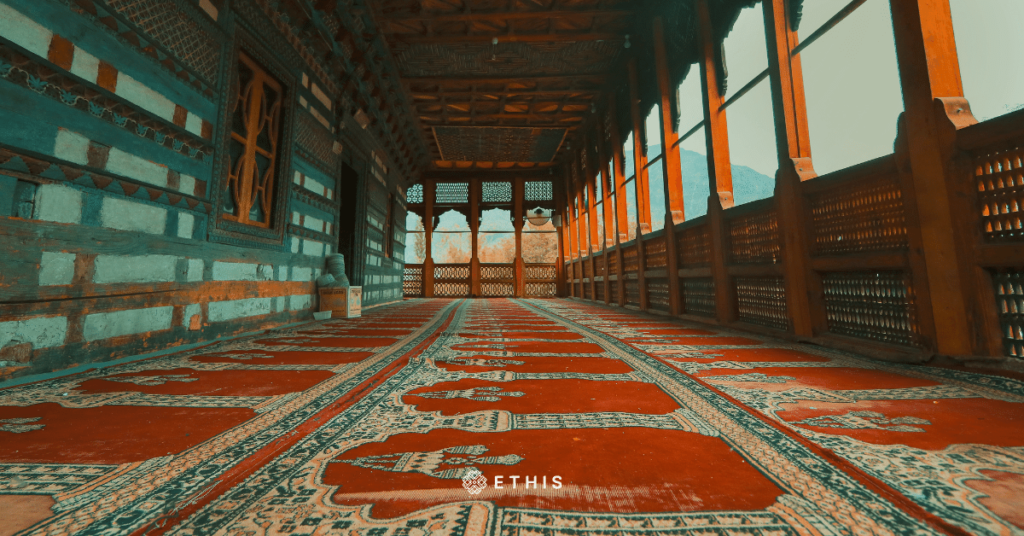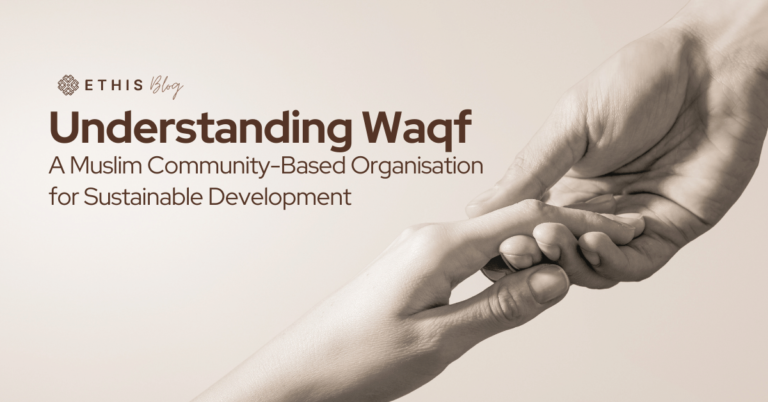
Economic activity has been a part of human life since the dawn of time, and it has always been a necessity for existence in the natural world. Mutual collaboration and empathy for our fellow people are required for these economic activities to produce tangible rewards. However, they can be successfully carried out within the framework of Islamic Shari’ah (Islamic Law).
There are always those among us who can’t support themselves and rely on others to augment their basic necessities and comfort. Waqf (voluntary charity) is one of the divine solutions that strive to bridge this gap within a holistic framework of brotherhood, mutual care, and concern for the psycho-physical enrichment and survival of those in need.
Islam is a comprehensive way of life based on obedience to Allah, as revealed in the Glorious Qur’an and practiced by the Prophet Muhammad ﷺ. As a way of life and religion, it focuses on the welfare of humans in this world and their salvation in the Hereafter. It embraces in its entirety all facets of human existence. It guides the individual lives of people as well as their collective existence as important parts of their community.
In Islam, every human being is treated as equal, regardless of race or ethnicity, while also striving to provide their most basic requirements. In order to do all of this, it relies on the state to activate specific institutional mechanisms in conjunction with the voluntary actions of individuals in society. It also encourages the recipient to seek Allah’s pleasure and fear His wrath in all aspects of life. The institution of waqf is one of the voluntary deeds that Islam encourages.
Related: Waqf – Islamic Social Finance for Continuous Development
What exactly does “Waqf” mean?


The Arabic term waqf is derived from the basic verb Waqafa. Waqf is pluralised as Awqaf. Kahf states, “From a Shari’ah point of view, waqf may be defined as holding a Maal (an asset) and preventing its consumption for the purpose of repeatedly extracting its usufruct for the benefit of an objective representing righteousness and/or philanthropy. Hence, waqf is a continuously usufruct-giving asset as long as its principal is preserved. Preservation of principal may result from its own nature – as in land – or from arrangements and conditions prescribed by the waqf founder.”
Waqf is also when a landowner contributes generously of his income, produce, crops, or property in order to ensure that the resulting income, tax, and benefits follow the direction he planned voluntarily. In this approach, you’re attempting to win God’s blessings. This legal claim is mortmain, which means it cannot be sold, granted, or inherited, no matter how much of it there is left in the estate.
For this reason, the words “bequest” and “endowment” by themselves do not accurately express the precise meaning of waqf. It should be noted that “bequest” implies the death of the donor, whereas waqf may be established both during the donor’s lifetime and by their Will after death.
Related: Waqf for Poverty Alleviation



Islam encourages altruism


In Islam, altruism is an intrinsic aspect of the religion’s way of life, and the institution of waqf is bolstered by this ethos. As well as a way to help the destitute, Islam sees charity as a means of self-improvement and a path to Allah’s pleasure and reward in the afterlife.
To complement zakah, the Holy Qur’an strongly encourages charitable contributions as reflected in the following verses:
“The likeness of those who spend their wealth in the way of Allah is as the likeness of a grain (of corn); it grows seven ears, and each ear has a hundred grains. And Allah gives manifold increase to whom He wills. And Allah is All-Sufficient for His creatures’ needs, All-Knower. [Qur’an 2:261]
“And spend out of the substance which We have bestowed on you, before death should come to any of you and he should say, “O my lord! If only Thou would reprieve me for a little while, then I would give alms and be among the righteous.” [Qur’an 63:10]
“… Whatsoever good you send before you for your souls, you would surely find it with Allah, better and greater in recompense.” [Qur’an 73:20]
“Those who spend their wealth in the cause of Allah, and follow not up their gifts with reminders of their generosity or with injury, for them their reward is with their Lord; on them shall be no fear, nor shall they grieve.” [Qur’an 2:262]
How much of one’s income and wealth is appropriate for welfare purposes? The Qur’an says that whatever is left after one’s personal, business/investment, and savings needs have been met. According to the Qur’an, people are encouraged to contribute generously to societal progress and to support those in need. It is therefore established that generous welfare expenditure is encouraged, whereas sacrificial levels of spending are encouraged for social catastrophes and situations that require large financial help.
A charity that endures: waqf


Waqf is therefore an exceptional form of philanthropic giving that is carried out on a purely voluntary basis and is endowed with the ability to generate revenue.
“When a human being dies, his work for Allah comes to an end except for three things: a lasting charity (sadaqa jaariya), knowledge that benefits others, and a good child who calls on Allah for His favour.” [Muslim, Abu Daoud, At-Tirmidhi, An-Nasaii].
As a result, the term “lasting charity” is used to describe endowments made through Waqf. This beautiful form of philanthropy not only bestows long-term blessings upon the living but also grants long-term recompense to those who have passed away.
Related: Waqf & Islamic Finance: A candid talk with Dr Shamsiah





Top Posts
Islamic P2P Crowdfunding Explained
Halal Money Matters: How Muslims Can Balance Deen and Dunya with Smart Islamic Finance
Halal Investments for Singapore Muslims? It’s time for a shake-up in the Islamic Investments scene.
Smart investment for making Halal money
3 Reasons Why Property Crowdfunding is the Smart Investment for You